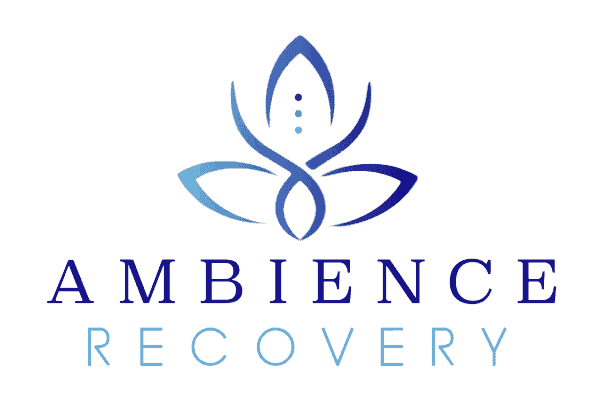Methamphetamine is a powerful stimulant that disrupts many bodily functions, including sleep. The effects on sleep go beyond temporary issues, causing long-term consequences for physical and mental well-being. Understanding how methamphetamine affects sleep patterns is crucial for recovery and health.
Key Takeaways
- Methamphetamine use severely disrupts sleep quality and duration.
- Sleep disturbances worsen physical and mental health.
- Addressing sleep issues is a key step in addiction recovery.
Introduction to The Effects of Meth on Sleep Deprivation
Sleep is vital for overall health, helping the body repair and the mind recharge. However, methamphetamine use disrupts this essential process, leading to a cascade of problems. People who use meth often experience insomnia, erratic sleep patterns, and exhaustion. Recovery from methamphetamine addiction requires addressing these disruptions as part of the healing process.
The Role of Sleep in Physical and Mental Health
Sleep is more than rest; it is essential for survival. During sleep, the body undergoes repairs, strengthens the immune system, and processes emotions and memories. A lack of proper sleep weakens the body, clouds the mind, and heightens emotional instability.
Chronic sleep deprivation has far-reaching effects. It can impair decision-making, increase the risk of depression, and lead to chronic physical illnesses such as hypertension and diabetes. For individuals struggling with methamphetamine addiction, these issues can compound, further complicating recovery.
How Methamphetamine Use Affects Sleep
Methamphetamine’s effects on the brain create a state of hyper-alertness. This prevents regular sleep cycles and impacts both the quality and duration of sleep.
One common issue is insomnia. Methamphetamine increases dopamine levels, creating heightened energy and alertness. People may go days without sleep, leading to extreme fatigue. When they finally sleep, it is often fragmented and unrefreshing.
REM sleep, the stage associated with dreaming and emotional regulation, is frequently suppressed. This leads to poor emotional processing and heightened irritability. Over time, chronic sleep disruptions cause cognitive decline, memory problems, and heightened stress levels.
The Long-Term Impact of Methamphetamine Use on Sleep
Long-term methamphetamine use damages the body’s ability to regulate sleep naturally. People who use meth for extended periods often experience:
- Persistent sleep deprivation weakens the immune system and impairs mental clarity.
- Increased risk of developing chronic sleep disorders such as insomnia or sleep apnea.
- Worsening mental health conditions, including anxiety and depression, due to prolonged poor sleep.
These long-term effects create a cycle where disrupted sleep leads to further drug use, making recovery even more challenging.
Challenges During Meth Withdrawal and Sleep
Quitting methamphetamine is a necessary but difficult step toward recovery, often accompanied by withdrawal symptoms that include significant sleep disturbances.
During the early stages of withdrawal, individuals may experience rebound hypersomnia, where the body tries to compensate for prolonged sleep deprivation by sleeping excessively. This can leave individuals feeling lethargic and emotionally overwhelmed.
Vivid dreams or nightmares are also common as REM sleep begins to return. While unsettling, these dreams indicate that the brain attempts to recover its normal sleep architecture. However, a healthy sleep-wake cycle can take weeks or months to return fully.
Strategies for Restoring Healthy Sleep Patterns After Meth Use
Overcoming sleep disruptions caused by methamphetamine use involves a combination of professional treatment and lifestyle changes.
Professional treatment programs offer therapies that address both addiction and sleep problems. Cognitive Behavioral Therapy for Insomnia (CBT-I) is particularly effective, teaching individuals techniques to improve sleep habits and manage insomnia.
Additionally, medical professionals may recommend certain medications or supplements to ease withdrawal symptoms and support better sleep during early recovery.
Making changes to daily habits also plays a vital role. Establishing a consistent sleep schedule can help regulate the body’s internal clock. Creating a calming bedtime routine—such as avoiding screens, practicing relaxation techniques, or reading—can signal the brain that it’s time to wind down.
Environmental factors also matter. A dark, quiet, and astounding bedroom can improve sleep quality. Limiting caffeine and other stimulants, especially in the afternoon and evening, can further support the recovery of healthy sleep patterns.
Conclusion to Methamphetamine Abuse & Sleep Patterns
Methamphetamine use significantly disrupts sleep patterns, leading to poor health and complicating recovery efforts. Addressing these disruptions is critical for long-term sobriety and overall well-being. By combining professional treatment with good sleep hygiene, individuals can rebuild their sleep health and improve their recovery.
If you or a loved one are struggling with methamphetamine addiction and its impact on sleep, Ambience Recovery can help. Call us at 866-721-7470 today to begin your path to healing.
FAQs About How Meth Addiction Affects Your Sleep
How does methamphetamine disrupt sleep?
Methamphetamine increases alertness and energy, making it difficult to fall asleep or stay asleep.
Can sleep improve after quitting methamphetamine?
Yes, but standard sleep patterns may not return for weeks or months. Professional treatment can help.
What are common sleep problems during withdrawal?
Rebound hypersomnia, vivid dreams, and difficulty establishing regular sleep cycles are common during withdrawal.
How can treatment programs address sleep issues?
Treatment programs offer therapies like CBT-I and medical support to help individuals restore healthy sleep.
Why is sleep important during recovery?
Healthy sleep supports emotional regulation, physical healing, and overall recovery success.
Resources
https://www.dea.gov/factsheets/methamphetamine
https://www.webmd.com/mental-health/addiction/crystal-meth-what-you-should_know
https://medlineplus.gov/methamphetamine.html
Katie is a Licensed Clinical Social Worker who has worked as a primary therapist, supervisor, and now clinical director for SUD/MH treatment centers for the past 12 years. Katie is trained in Brainspotting, EMDR, Internal Family Systems and Dialectical Behavior Therapy and is passionate about treating substance use disorders, trauma and grief.






